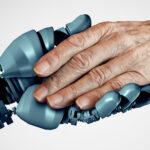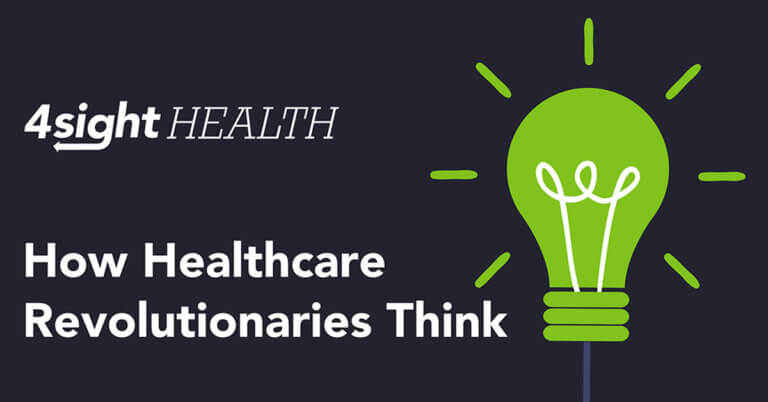May 14, 2024

Burda on Healthcare: It’s Doctors Versus Nurses Over the Future of Healthcare AI
The personal and professional divide between doctors and nurses has been around for as long as there have been doctors and nurses. That is, unless they fall in love and get married, which occurs more often than you think. Even then, one is still a doctor, and the other is still a nurse. Same as it ever was.
If you think doctors and nurses could agree on anything, you’d think it might just be artificial intelligence. Healthcare AI could make both parties’ lives better at work. Less administrative paperwork. Easier clinical documentation. Streamlined workflows. Faster and better diagnoses and treatment decisions. Doctors and nurses may even spend less face time with each other or talking to one another. Win, win.
But, alas, I don’t think healthcare AI will have that positive effect. In fact, I think healthcare AI will be the final arena in which the two professions do battle.
Why do I think that? Well, I didn’t think that until I put a few things together in my head.
Physicians Warm To the Thought Of Healthcare AI
 The first thing was a survey of doctors done by Wolters Kluwer. The press release announcing the results screamed, “Over two-thirds of U.S. physicians have changed their mind, now viewing GenAI as beneficial in healthcare.” Like always, the healthcare trade press mimicked the spin when it regurgitated the press release and published it as news.
The first thing was a survey of doctors done by Wolters Kluwer. The press release announcing the results screamed, “Over two-thirds of U.S. physicians have changed their mind, now viewing GenAI as beneficial in healthcare.” Like always, the healthcare trade press mimicked the spin when it regurgitated the press release and published it as news.
I filed it away because the respondents numbered only 100 doctors, and Wolters Kluwer is building its own generative AI technology for healthcare. Why not change the press release headline to: “Hey look! Everyone loves what I’m doing when they used to hate it before!”
Setting aside the self-serving nature of the survey and its small pool of respondents, here’s what the doctors said:
- 81% said generative AI can improve care team interactions with patients.
- 68% said they changed their minds over the past year and now think generative AI would be beneficial in healthcare.
- 68% said generative AI can save them time by quickly searching medical literature.
- 59% said generative AI can save them time by summarizing data about a patient in their electric medical record.
- 54% said generative AI will reduce the time they spend looking for data to assist them in clinical decision-making by 20% or more.
- 40% said they are ready to use generative AI this year with patients at the point of care.
All in all, a warm response from doctors to the prospect of AI becoming commonplace in all kinds of patient care settings.
Warm is not the word I would use to describe a protest by members of the California Nurses Association (CNA) at San Francisco Medical Center over the use of AI-powered technology at the Kaiser Permanente-owned hospital. I have no first-hand knowledge of the April 22 protest, but I did notice a lot of coverage of it in the healthcare trade press. Here’s a good story about the protest published by Nurse.org.
Coverage of the nurse protest against healthcare AI blipped on my radar about a week after the coverage of the Wolters Kluwer survey results. That’s the second thing I put together in my head.
“Nurses are all for tech that enhances our skills and the patient care experience,” the CNA said in an April 18 press release announcing the project. “But what we are witnessing in our hospitals is the degradation and devaluation of our nursing practice through the use of these untested technologies.”
That made me wonder if there was a Wolters Kluwer-like survey of nurses about how they felt about AI in the healthcare workplace. And there is, and it came out on April 25, three days after nurses protest at San Francisco Medical Center.
Nurses Cool to the Thought of Healthcare AI
 Cross Country Healthcare, a Florida-based temporary nurse staffing company, conducted the survey in partnership with the Florida Atlantic University College of Nursing and published the survey results in a 32-page report called “The Future of Nursing: Embracing Technology While Preserving Humanity.” Of the 1,127 nurse respondents, 85% were employed, 8% were students, and 7% were not working.
Cross Country Healthcare, a Florida-based temporary nurse staffing company, conducted the survey in partnership with the Florida Atlantic University College of Nursing and published the survey results in a 32-page report called “The Future of Nursing: Embracing Technology While Preserving Humanity.” Of the 1,127 nurse respondents, 85% were employed, 8% were students, and 7% were not working.
Here are some of the more revealing findings:
- 84% of employed nurses said AI cannot handle more data-driven tasks than nurses.
- 54% of nursing students said they are concerned about potential job displacement, i.e., job security because of AI.
- 53% of employed nurses described themselves as being “not very” or “not at all” comfortable with using AI.
- Job replacement was the second highest concern expressed by employed nurses about using AI in healthcare (the top concern was the lack of empathy and patient connection).
- 47% of employed nurses said they disagreed with AI’s potential to “enhance care delivery by streamlining time-consuming tasks devoid of specialized nursing skills or knowledge.”
All in all, a cool response from nurses to the prospect of AI becoming commonplace in all kinds of patient care settings.
The Enemy of My Enemy Is My Friend
 How do you explain the divergent views of healthcare AI from two professions — medicine and nursing — that have been working side-by-side for hundreds of years?
How do you explain the divergent views of healthcare AI from two professions — medicine and nursing — that have been working side-by-side for hundreds of years?
Here’s what I think.
Doctors didn’t like AI because they thought it would replace them. But AI is growing on them because they think it will replace nurses.
Nurses liked AI because they thought it would replace doctors. But they are cooling to AI because they think it will replace them, not doctors.
None of this, of course, has anything to do with using healthcare AI to make healthcare work better for patients from an access, cost, quality, safety or service perspective. It’s all about job security. I kind of made a similar point in my January column, “What Do You Get When You Add Up All These Healthcare AI Surveys?” I argued that everyone wants healthcare AI to benefit them, not necessarily the other person.
The successful adoption of AI in healthcare won’t come down to technological advancements or the latest iteration of generative AI or healthcare AI regulation or healthcare AI governance. It will come down to whether doctors and nurses can get along using it.
Same as it ever was.
Thanks for reading.





